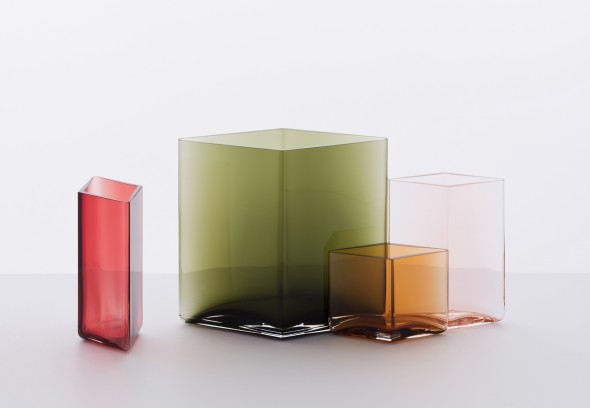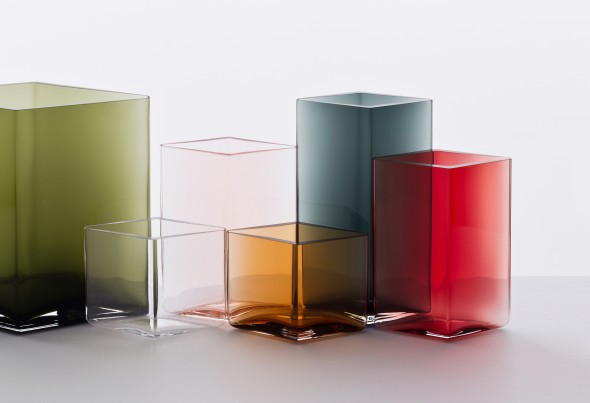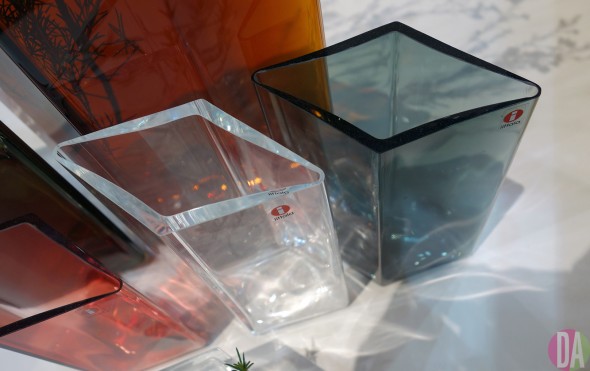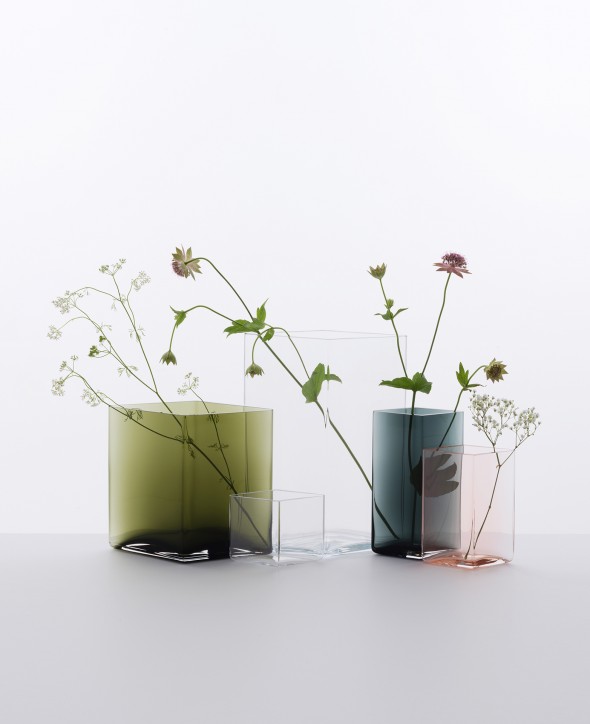
iittala’s ruutu honored by cooper-hewitt.

iittala’s first collaboration with ronan and erwan bouroullec, ruutu is a series of 10 vases available in five sizes and seven colors. when collected and combined, they make a seamless installation where both the strength and delicate qualities of glass come alive. meaning diamond in finnish, ruutu is created from mouth-blown glass in iittala’s finland factory. each vase takes seven craftsman 24 hours to produce. the large color version presents the biggest manufacturing challenge: reaching an even, delicate color requires the exact temperature, timing and a great deal of expertise in glass-mass chemistry. precise execution of a well-conceived design makes ruutu a natural fit for a museum devoted to advancing the public understanding of design and human creativity both past and present.

located in new york city, the [ cooper-hewitt ] is one of nineteen museums that falls under the wing of the smithsonian institution and is the only museum in the united states devoted to historical and contemporary design. the permanent collection consists of more than 200,000 objects representing contemporary and historical design in four curatorial departments – drawings, prints, and graphic design; product design and decorative arts; textiles; and wallcoverings.
[ iittala ] started as a glass factory in iittala, finland in 1881, today celebrates generations of essential objects that are made to enrich people’s everyday lives. iittala believes objects should be distinctive, combinable and multi-functional, with lasting design that inspires individual use and expression. as a company based in fin-land, where quality, aesthetics and functionality are important values, iittala believes in interior design that lasts a lifetime. the progressive philosophy of finnish design heroes, kaj franck and alvar aalto, acts as in inspiration to keep iittala forever relevant.

editor’s note> ruutu possesses extraordinary technical detailing, the corners for example, the clearness and purity of color, the gradation of color due to the variance in thickness, i.e., the lightening at the very thin and unique 30 degrees corners. photography does not do this collection justice. click on photo > enlarge



